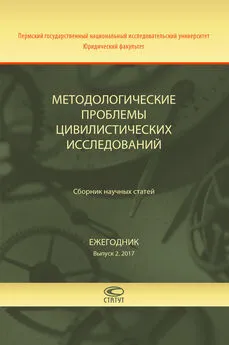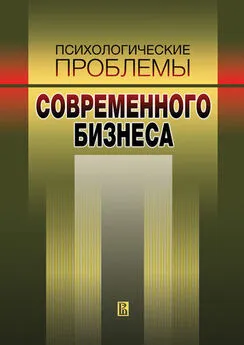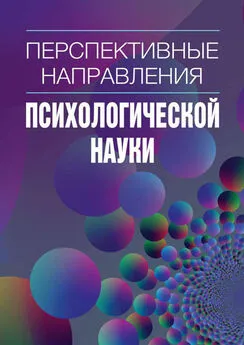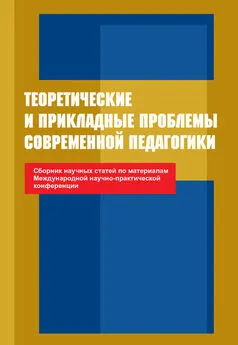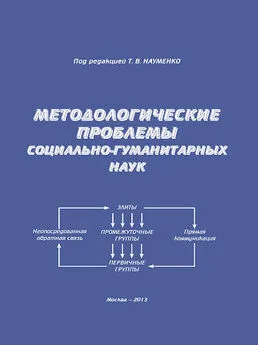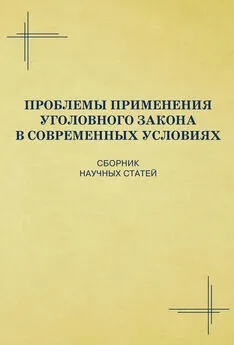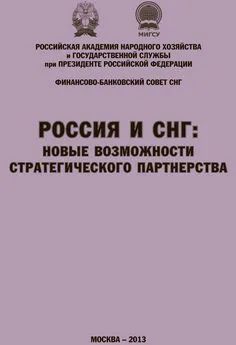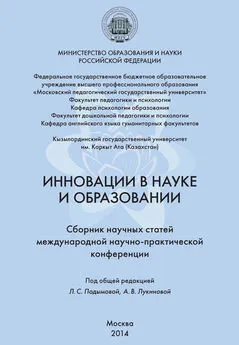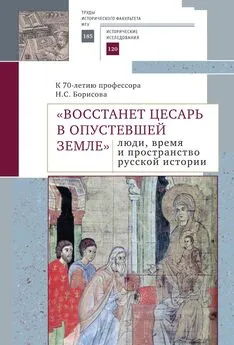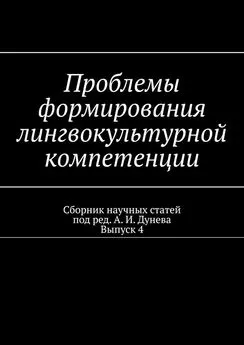Коллектив авторов - Методологические проблемы цивилистических исследований. Сборник научных статей. Ежегодник. Выпуск 2. 2017
- Название:Методологические проблемы цивилистических исследований. Сборник научных статей. Ежегодник. Выпуск 2. 2017
- Автор:
- Жанр:
- Издательство:неизвестно
- Год:неизвестен
- ISBN:978-5-8354-1309-6
- Рейтинг:
- Избранное:Добавить в избранное
-
Отзывы:
-
Ваша оценка:
Коллектив авторов - Методологические проблемы цивилистических исследований. Сборник научных статей. Ежегодник. Выпуск 2. 2017 краткое содержание
Издание предназначено для научных работников, докторантов, а также студентов магистратуры и аспирантов гражданско-правовых направлений подготовки.
Методологические проблемы цивилистических исследований. Сборник научных статей. Ежегодник. Выпуск 2. 2017 - читать онлайн бесплатно ознакомительный отрывок
Интервал:
Закладка:
However, the methodology of the science, including the civil science, has a common part, because the methodology as a specific organization of the scientific activity is in charge not only for the use of the necessary means and procedures of the scientific cognition but also for the correct definition of the object and the subject of the research, for its tasks and phases, for its results (scientific novelty) 25 25 Lazarev V.V., Lipen S.V. History and Methodology of the Juridical Science. M.: Norma; INFRA-M, 2016. P. 166.
.
The common part of the civil methodology also includes the question of the correspondence between the “theory of law” and the “civil law” sciences, resulting from the general question of correspondence between the science theory and methodology. The scientific theory performs all the methodological functions in all the sciences 26 26 Yudin E.G. Methodology of Science. Systemacity. Activity. M.: Lenand, 2016. P. 69.
. The general theory, by forming “ the systematic methodology mindset for the forthcoming juridical researches” 27 27 Lazarev V.V., Lipen S.V. Op. cit. P. 175. See also Baytin M.I. About the Methodological Importance and the Subject of the General Theory of the State and the Law // State and Law. 2007. # 4. P. 5–9.
, performs this function for the civil science. This means that the theory of law shows the way of gaining an insight into the civil phenomenon. The notions uncovered by the theory of law, should get the further concreteness in sectoral sciences through revealing their sectoral features. And, vice versa, the research of the specific civil phenomenon should be held with a wide use of the legal phenomena cognition theoretical tools developed by the juridical science: “The level of the theory of law as the methodology is a fundamental science about the law where the key law concepts and principles are being developed to be used by specific juridical sciences” 28 28 Kozhevnikov V.V. Methodology and the History of Law: Textbook: in two volumes. Omsk: Omsk University Publishing House, 2008. Part 1. P. 21.
. This provides for a well-known conceptual and category harmony of the legal science as a whole.
Nevertheless, in modern civil researches we often see an extremely disrespectful attitude towards the existing theoretical legal results. The results of the civil researches, for example about the civil legal relations, about the civil legal juridical facts, about the civil legal liability, civil legal protection of the rights, civil rights and duties, are so “unique” and far from the theoretical legal concepts of these legal phenomena, that they cause only reasonable negative reaction of the legal theorists – from the deep bewilderment to the explainable indignation. Such a situation is a result either of the misunderstanding of the meaning of the theory of law for the sectoral sciences or of the general lack of knowledge on the contents, the structure and the essence of the scientific methodology itself.
Besides, it is important to differentiate between the fundamental and the applied civil researches. Introducing changes into the existing legislation and improving the court practice cannot be the purposes of the fundamental researches, although as a result the latter gain an implied practical meaning.
However, the question of the philosophical part of the civil methodology is deemed to be most complicated. The chosen methods of research and the results of the research to a large extent depend on the scientist’s world view and his law understanding.
For example, the normativism suggests the exceptional study of the civil legal norms that regulate the legal phenomenon. Despite the fact that the civil theses defendants very seldom indicate the normativism as the methodological basis of the work, it is more often that it is the basis of the work. Indicating the dialectics as the fundamental of such a research means that both the normativism and the dialectics are misunderstood, because the principal technique of the latter is not “applicable for studying the the aggregate of the legal norms” 29 29 Puginskiy B.I. Op. cit. P. 9.
. Besides, the normative approach does not suggest the usage of the inter-disciplinary methodology, because it studies the static legal norms with no account for their real contents, and economic, social, cultural, psychological and any other extralegal dependence. In this case, the civil legal norms regulating the object in question, are accepted with no explanations, as a dogma. The dogmatic methodology of researching the civil legal problems defines the choice of the definite set of the cognition methods 30 30 See about them, for example, Syrykh V.M. History and Methodology of the Juridical Science: Textbook. M.: Norma; INFRA-M, 2013. P. 327–335.
, which will differ from the methods of, for example, comparative legal of social legal research.
Today, we observe the “grim cocktail” of the incompatible world-view ingredients in most diverse combinations: of the dialectics, metaphysics, idealism, materialism, realism, historicism, normativism, natural legal approach, sociological approach, phenomenological approach, communicative and other approaches to understanding the civil phenomena.
Surely, such a situation is primarily caused by the general shift in the Russian science from the methodological monism to pluralism. We are not against the philosophical methodological pluralism but the pluralism with dialectical necessity has two sides and holds internal contradiction, accurately noticed by O.V. Martyshkin: “The pluralism is good when it rests on solid cultural traditions and is coupled with a serious battle of ideas, with polemics, impatience for incompetence and pseudo science, craftsmanship, “self-expression” imposed by the will to become famous or by the deceptive ideas (scientific degrees, positions, honour). Under such conditions, the pluralism leads to improving the level of the scientific statement. Otherwise, the freedom of thought degenerates into the dissoluteness, whateverism and permissiveness, and this leads to decreasing the culture of the research” 31 31 Martyshkin O.V. About the Special Features of the Philosophical Legal Methodology // State and Law. 2016. # 6. P. 21.
.
Only harmonious, well-thought-out, objectively justified research methodology can withstand such a “dissoluteness, whateverism and permissiveness” in the theoretical cognition. With this, in accordance with the fair point of N.N. Tarasov, “the choice of the philosophical grounds and the methodology of the research – is the choice and the responsibility of the scientist” 32 32 Tarasov N.N. Methodological Problems of the Legal Science. Ekaterinburg: Humanitarian University Publishing House, 2001. P. 48.
, and the young scientists need to be taught both.
In that context, the assistance in the development and solving the methodological problems of the civil science and the civil researches is deemed by the authors and the editors of the publication as the top-priority field of their scientific and scientific pedagogical work, that will be continued, in particular, within the framework of the Perm Reading on the Methodological Problems of the Civil Researches, held at the law department of the Perm State National Research University in cooperation with the Kazan Federal University, that have become annual. We invite Doctors of Juridical Sciences and doctoral candidates sensitive on the today’s condition of the methodological theme in the civil law, to participate.
We also hope for the continuation of the mutually beneficial cooperation with our permanent partner – the “Statut” publishing house. We express our appreciation and gratitude on behalf of all the team of the authors for every possible support of our scientific event and for the given opportunity to publish the scientific articles of the participants.
Editors in Charge:
Doctor of Juridical Sciences, Honoured Lawyer of the Russian Federation A.V. Gabov
Doctor of Juridical Sciences, Professor B.G. Golubtsov
Doctor of Juridical Sciences, Professor O.A. Kuznetsova
I. Статьи специально приглашенных докладчиков
О мировоззренческом аспекте методологии гражданского права
УДК 347
В.В. Зайцев
Доктор юридических наук, профессор, заслуженный юрист РФ, заместитель заведующего кафедрой правового обеспечения рыночной экономики
Российская академия народного хозяйства и государственной службы при Президенте РФ
119571, Россия, г. Москва, пр. Вернадского, 82, стр. 1
ORCID:orcid.org/0000-0001-5299-3938
ResearcherID:M-3964-2016
E-mail: 7732371@gmail.com
В.А. Рыбаков
Доктор юридических наук, профессор, ведущий научный сотрудник Научного центра экономического правосудия
Российская академия народного хозяйства и государственной службы при Президенте РФ
119571, Россия, г. Москва, пр. Вернадского, 82, стр. 1
ORCID:0000-0003-0783-7359
ResearcherID:M-3991-2016
E-mail: rva945@yandex.ru
Введение: активно насаждаемый в последние годы методологический плюрализм привел к методологическому хаосу в цивилистических исследованиях. Особую опасность представляют попытки замены диалектического материализма на идеализм, в ходе которых поднимается вновь проблема соотношения бытия и сознания, базиса и надстройки. Цель: показать важность диалектико-материалистического подхода для цивилистических работ, особенно касающихся проблем права собственности. Методы: использовались методы формальной логики и диалектики. Результаты: цивилистическая методология должна учитывать российский опыт, национальные традиции и правовую идеологию, недопустимо переносить зарубежные конструкции в российское право без надлежащей адаптации. Исследователям важно учитывать, что гражданско-правовые отношения должны быть гармонизированы с экономическими, однако и те и другие отношения обладают самостоятельной сущностью и ценностью. Выводы: при исследовании гражданско-правовых проблем важен мировоззренческий аспект методологии. От типа правопонимания ученого зависят результаты его научной работы. Право и правоотношения являются самостоятельными предметами научной абстракции.
Читать дальшеИнтервал:
Закладка:
